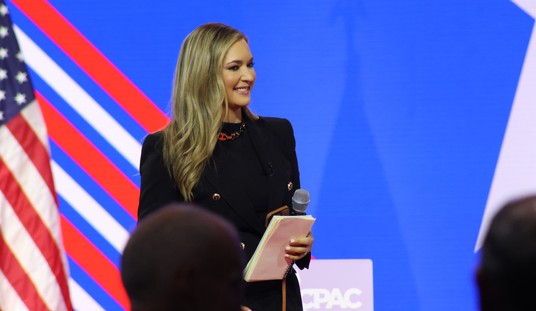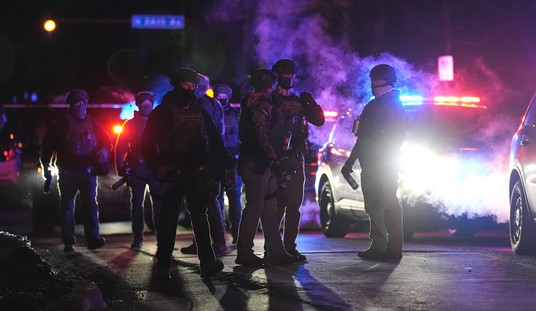He really is unique. Who else in the field combines John McCain’s questionable foreign policy and immigration instincts with Barack Obama’s youthful lack of experience?
Sorry, sorry. I know it’s his big day. I’ll be nice.
U.S. Senator Marco Rubio of Florida told top donors on Monday that he will run for the White House because he is “uniquely qualified” to represent the Republican Party in the 2016 presidential race, the Associated Press reported.
During a conference call with donors, Rubio criticized Democratic front-runner Hillary Clinton as a leader from yesterday and said the 2016 race will be a choice between the past and the future, AP said.
His formal announcement is tonight at 6 p.m. ET in Miami. The goal, per the NYT, will be to present himself “as a forward-looking, next-generation leader,” i.e. a guy nearly 20 years younger than Jeb Bush and nearly 25 years younger than Hillary Clinton. That’s a gamble in itself: Not only is it debatable whether the country wants another president in his early 40s over a more experienced candidate after eight years of Obama but this year’s GOP field has multiple candidates around Rubio’s age. Scott Walker is just four years older; Ted Cruz less than a year older; and Bobby Jindal is younger by a few weeks. Even Rand Paul and Chris Christie, both in their early 50s, are young by Washington standards. Rubio’s not going to stand out from the pack age-wise.
He’ll stand out as a Latino candidate, of course, Cruz’s presence notwithstanding. That’s one reason, but not the main reason, why he’s reportedly going to talk about relations with Cuba in tonight’s speech, a seemingly minor issue to emphasize in his formal introduction to the country:
When Marco Rubio launches his bid for the presidency on Monday evening, Cuba figures to loom large.
The Florida senator and son of Cuban parents will announce his campaign at Miami’s historic Freedom Tower, considered the “Ellis Island” of the South because it was the first stop in America for scores of Cubans seeking political asylum after fleeing the Castro regime…
With the rise of ISIS and terrorism abroad, along with other national security issues, Cuba policy doesn’t exactly rank high on voters’ minds. Indeed, 59 percent of Americans, including 56 percent of Latinos, approve of the recent U.S. decision for diplomatic recognition of Cuba, according to an MSNBC/Telemundo/Marist poll this week. A Univision Noticias/Fusion poll published by the Washington Post found 97 percent of Cubans favored normalizing relations.
Voters may not care much about Cuba in its own right but the issue has all kinds of value for Rubio. It’s a showcase for his hawkishness on foreign policy; it’s a way to remind voters, especially Latino voters, of his own heritage; it’s a reminder to wary conservatives that he’s not afraid to throw roundhouses at Obama; and most importantly, it’s a nudge to Cuban-Americans in Florida that he, not Jeb Bush, has taken the lead in resisting the White House on normalizing relations with Castro. Rubio and Bush are unique among the GOP field in that they’re running a statewide race on top of the national race. Chances are good that both men will still be in contention when the Florida primary is held in mid-March 2016. If so, that vote will be a de facto elimination game for the two of them: Whoever loses will be dismissed as a guy who couldn’t prevail among the voters who know him best and will slip into the second tier of candidates, likely for good. Rubio knows that. He’s using his big photo op tonight to start wooing Cuban-American Republicans in Florida 11 months early, hoping they’ll make the difference for him against Jeb.
And that’s the thing I like most about him. Tactically, he’s always seemed smart. Even when he makes a high-stakes bet, those bets tend to have more upside than downside. By running for president now, he’s effectively giving up his Senate seat — but consider what he stands to gain. He has a nonzero chance of being the nominee; even if he falls short, he’ll improve his already sizable chance to be VP; and if he ends up off of the ticket altogether, he’ll be primed to run for governor in 2018. If he wins that race, he’ll be arguably the frontrunner for the GOP nomination in 2020 or 2024, when he’ll be just 53 years old. It’s a calculated risk but you can see the logic. Same with immigration. If Rubio had lobbied against the Gang of Eight, he’d have solid but not world-beating conservative support in the polls right now. Rand Paul would still be running, as would Ted Cruz, as would Scott Walker, and meanwhile Rubio’s opposition to amnesty would make him suspicious to the donor class. So he did the shrewd thing: He joined the Gang of Eight, which cost him some righty support but earned him lots of respect among the GOP country-clubbers who tend to decide presidential nominations. And he was careful not to alienate conservatives more than he had to. He remains on good terms with conservative talk radio hosts to this day. Even most (although not all) of the tea partiers who reject him for having betrayed the right on immigration don’t dislike him so much that they’d refuse to turn out for him against Hillary. So, for all the grief he’s gotten over amnesty, he helped himself a bunch with the party’s most influential segment and didn’t render himself radioactive to most of the base. A guy smart enough to do that is a guy who’ll run a smart race against Hillary if given the chance. Probably not a winning race — there’s no overcoming that gender gap, I fear — but he won’t do anything stupid as nominee. And needless to say, if you’re looking for a nominee with strong retail skills, you could do a lot worse. There’s probably no one in the field who contrasts more sharply with Hillary’s lack of charm than Rubio.
Exit question: Is it more important for Rubio to knock Walker out first or to knock Jeb out first? Knocking out Jeb would be huge, as it would leave Rubio himself well positioned to become the establishment favorite, but it’d also be hard given how much cash Bush will have to rebound. Knocking out Walker would leave Rubio positioned as the chief center-right alternative to Bush, which might win back a bunch of that conservative support he lost with immigration, but I don’t know how righties would react to Rubio attacking Walker effectively. Walker’s conservative credentials are still good with most tea partiers whereas Rubio’s aren’t. If Rubio damaged Walker, righties might refuse to back him as an alternative on principle, suspecting that he was actually just a stalking horse for Jeb tasked with destroying Walker all along.







Join the conversation as a VIP Member